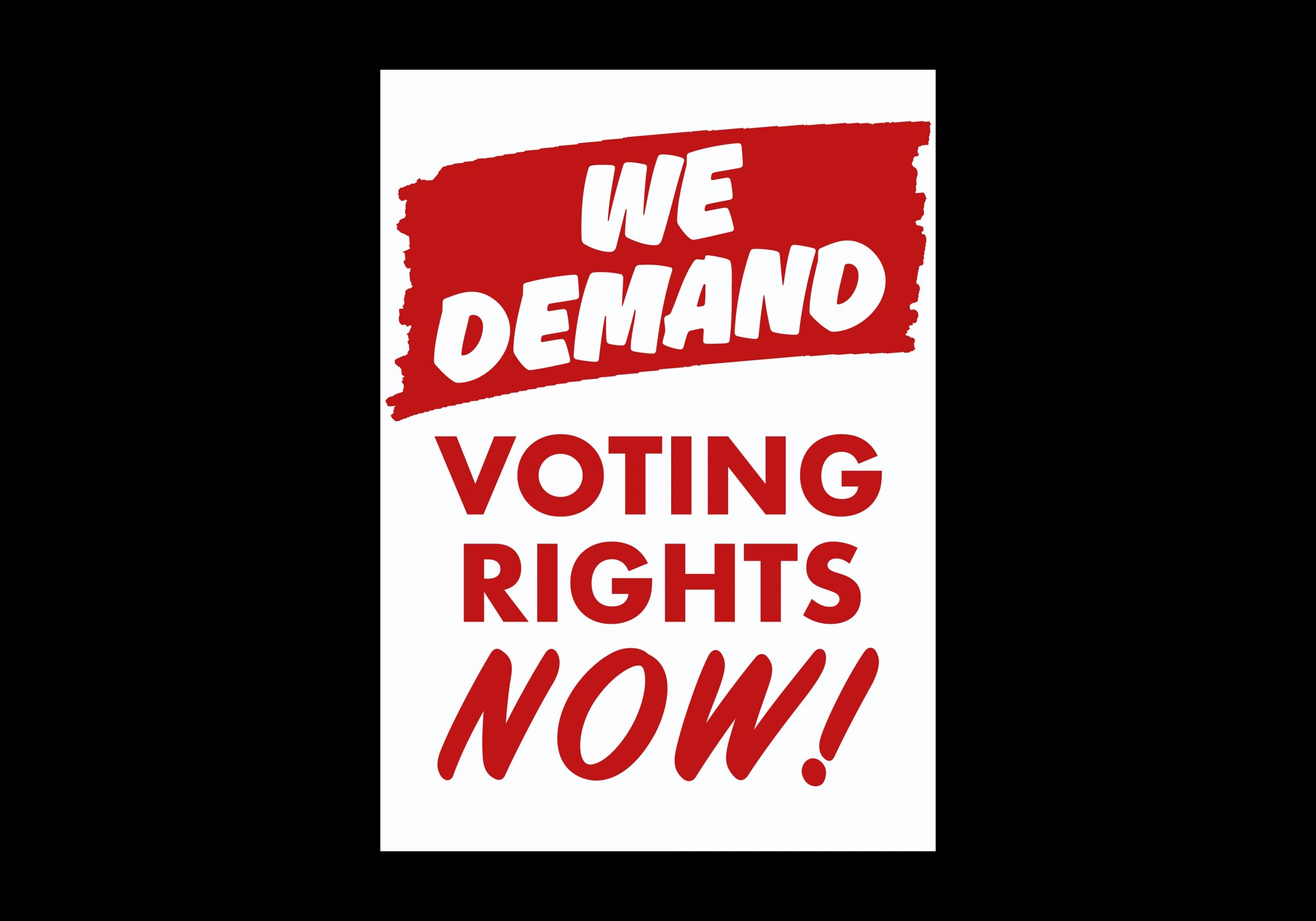In Maricopa County, Arizona, prosecutors explicitly threaten people they charge that if they assert virtually any of their rights during plea bargaining, any subsequent plea offer will become “substantially harsher.” It doesn’t matter if the defendant is claiming innocence or just wants a little more discovery. It doesn’t matter if they are alleging police misconduct. If you speak up, the deal gets worse. Much worse. As the American Civil Liberties Union, where we litigate around these issues, has alleged in its lawsuit challenging the practice, this is an obvious problem for justice. For one, because everyone has a right to fight for their freedom; we can’t have state actors retaliating against people for asserting their rights, or they are no rights at all.
But this is also a problem for democracy. Why? Because many of these coerced pleas — in Arizona and around the nation — result in the loss of the right to vote as well.
So as we enter another election season in the United States, and the country becomes reacquainted with noxious, suppressive tactics like gerrymandering and voter purges, let’s remember that roughly 5.2 million people nationwide will be barred — not dissuaded, barred — from casting a ballot because of a past criminal conviction. And the vast majority of those convictions will be due to plea bargains.
Both incarceration rates and conviction-related disenfranchisement have increased an astounding 500 percent over the last 40 years or so, despite crime rates falling consistently over the same period. Not coincidentally, also around 45 years ago, in a case called Bordenkircher v. Hayes, the Supreme Court wrote prosecutors a virtual blank check to coerce defendants to plead guilty. In so doing, the court admitted that “whatever might be the situation in an ideal world, the fact is that the guilty plea and the often-concomitant plea bargain are important components of this country’s criminal justice system.” In other words, by 1977, plea bargaining was already a system too big to fail. Fast-forward to the present, and about 90 percent of federal convictions and 95 percent of state convictions in the U.S. are obtained via plea. In 2012, the justices put it even more bluntly, when they said that “plea bargaining . . . is not some adjunct to the criminal justice system; it is the criminal justice system.”
In other words, plea bargaining is, mechanically, how we got mass incarceration. And therefore, it is one of the ways we got mass felony disenfranchisement.
Plea bargaining is, mechanically, how we got mass incarceration. And therefore, it is one of the ways we got mass felony disenfranchisement.
Worse yet, prosecutors are not required to warn a person about all of the long-term consequences of pleading guilty to a felony. A felony conviction, even one that does not include jail time, vastly diminishes that person’s future prospects for housing, employment, and education. Indeed, there are thousands of these so-called collateral consequences that extend the pain of conviction far beyond someone’s release or discharge date, and, outside of immigration consequences, prosecutors don’t have to disclose any of them. Maybe the most harmful among these: the loss of the right to vote.
Mass felony disenfranchisement not only hurts individuals with a conviction; it deprives targeted communities of equal political power. When one in 16 Black American adults is disenfranchised, a rate 3.7 times greater than that of non-Black Americans, their communities’ interests are not adequately represented by local and federal office-holders. Unsurprisingly, limiting civic and economic opportunities also increases recidivism and undermines community safety, creating a vicious cycle. This deprives the affected community of even more voting power, leaving no recourse to change the laws and policies that led to those convictions in the first place. In this way, mass incarceration and voter suppression have always been inextricably linked, and have the unique power to silence entire communities. Coercive plea bargaining takes this additive effect and makes it exponential.
Moreover, just as mass incarceration and its attendant racial disparities are particularly acute in certain states and localities, so too are the starkly disproportionate rates at which states deprive their citizens of the right to vote.
In Arizona, for example, almost 5 percent of people otherwise eligible to vote cannot do so because of a felony conviction. That number jumps to 7 percent for Latinos and almost 13 percent for Black people. Just to be clear about how much this matters: The margin of victory in the 2020 presidential election in Arizona was less than half a percent.
Unsurprisingly, Arizona has also embraced coercive plea bargaining. One Phoenix woman, Deniece Pierce, had no criminal record and was caught stealing $2,000 from her dad to give to her struggling mom. She confessed right away and offered to find work to pay it back. Her attorney communicated to prosecutors that it was a family matter, and that her dad had forgiven her. Still, prosecutors offered her a plea bargain that required pleading to a felony and being on felony probation. They threatened her with prison time if she fought back. Deniece, terrified to the point she was having panic attacks at court appearances, eventually gave in and took a felony plea for three years of probation. She won’t be voting in the next election. By sharing stories like Deniece’s, the ACLU’s lawsuit seeks for the first time to place meaningful limits on Bordenkircher, which will hopefully limit felony disenfranchisement along with it.
In Florida, where over 7 percent of the overall voting-age population and 15 percent of the Black voting-age population are disenfranchised by a conviction, the political stakes are even higher. With 1 in 7 Black Floridians still disenfranchised, and the vast majority likely convicted by accepting plea deals, the prevalence of plea bargaining and the harsh disenfranchisement regime has stripped Black communities of equal political representation. In 2018, disenfranchised Floridians took matters into their own hands and led a campaign to end lifetime disenfranchisement by amending the state constitution. Voters overwhelmingly approved the amendment, and returning citizens like our client Betty Riddle — a great-grandmother who completed her sentence, earned her college degree, and now serves her community full time working for the public defender — cast her ballot for the first time at the age of 62. In response to the citizen-initiated constitutional amendment restoring voting rights to people who have completed their sentence, the Florida legislature passed a law to keep people like Betty disenfranchised long after they have served their time.
Because the law defines completion of sentence to include the payment of all fines and fees associated with a conviction, people remain disenfranchised until their debt is paid. This includes people who the state itself deemed indigent at the time of conviction — and thus are unlikely to ever be able to afford payment. Florida politicians effectively re-disenfranchised those who cannot afford to pay fines and fees, creating a perfect storm perpetuating the war on poverty and racial minorities.
Over the last two years, the U.S. has undergone twin reckonings on racial justice — in the wake of George Floyd’s murder — and democracy itself — in the wake of January 6 and the sickening voter suppression that both preceded it and continues to this day. These reckonings, which have exposed the frailty of our democracy and commitment to criminal justice reform, overlap in a very literal way in how the machine of coercive plea bargaining feeds felony disenfranchisement, and thus we need to end them in tandem as well. This involves passing legislation to curtail abusive plea practices, severing voting from criminal convictions entirely, and aggressively restoring rights on the back end. It also means electing local officials — particularly prosecutors — who take their constitutional obligations seriously.
And most of all, it means investing in the communities most harmed by these dual scourges, restoring their political power so they can lead efforts to end mass incarceration, systemic racism, and voter suppression of all kinds for good.
The same tactics that have built the necessary power in Black and brown communities to overcome bondage, expand the franchise, and overcome voter suppression can be used to empower communities to combat mass incarceration collectively.
Mass incarceration and voter suppression have always been linked. Both are uniquely communitarian harms that require community-driven responses. While we push for the policy changes described above, we should also be organizing people to fight back against both. The same tactics that have built the necessary power in Black and brown communities to overcome bondage, expand the franchise, and — though they shouldn’t have to — overcome voter suppression can be used to empower communities to combat mass incarceration collectively. This holistic approach is admittedly untested, and certainly easier said than done. But when the forces of mass incarceration and voter suppression have a tool as powerful as coercive plea bargaining, only people banding together to reclaim their freedom have the power to overcome them.
Image: Unsplash


